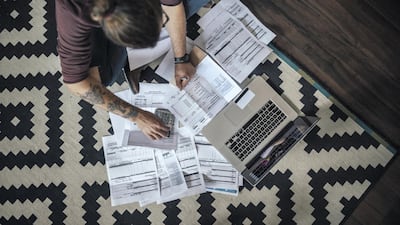My Dubai free zone has recently sent me an invoice relating to VAT on office rental from November 2017 to the end of October 2018. I have previously paid the rent in 4 cheques and then suddenly this additional charge appears. I would like to know if they are entitled to charge me the VAT now and, as the invoice is so late, am I able to reclaim the VAT? EOM, Dubai
I have been asked this question several times in the last few weeks so it appears that this free zone authority is only now realising that the office rental invoices should have had VAT added from 1st January 2018. Any rent for the period before the 1st January is not subject to VAT and should be excluded from their calculation.
The relevant legislation in this case is called the Transitional Rules. They were put in place to cover the period just after the introduction of VAT, but we are still using them almost a year after VAT came into play. The relevant clauses can be found in Article 80 of the Decree Law and Article 70 of the Executive Regulations. It says that where contracts were concluded prior to the introduction of VAT on January 1, 2018 and where the original contract made no mention of VAT or Tax, then the consideration received shall be inclusive of VAT regardless of whether it had been taken into accounting when determining the consideration for the supply, which in your case is the rental charge.
We then need to look at whether the free zone is entitled to charge you VAT retroactively. This is covered under Article 70, points 6, 7 and 8 of the Executive Regulations. These clauses say that if the recipient is VAT-registered and entitled to recover the VAT then the amount previously invoiced should be treated as exclusive of VAT, so in short, the free zone must add VAT to the amount previously invoiced.
However, the law goes on to say that the supplier should have requested confirmation from you before the 1st January 2018 whether you were VAT registered and able to recover the VAT. They have clearly not done this. Following the exact letter of the law they are now not entitled to recover the VAT from you.
_________
Read more:
Emirates NBD issues warning over VAT phishing email targeting clients
VAT q&a: 'Can I take on new orders without a TRN number?'
VAT q&a: 'Does a company branch have to be registered separately for taxes?'
_________
Keep in mind, though, that if you are VAT registered, able to recover this VAT and wish to maintain a good relationship with the free zone landlord, then I would suggest you consider paying the VAT. You can still recover it despite receiving the invoice for VAT on the rent many months after you received the invoice for the rent itself. The fact that the invoice is being raised and sent to you now does not preclude you from being able to net the VAT off on your next VAT return. This is covered in Article 55 of the Decree Law which refers to the date you receive the invoice, rather than the date shown on the invoice. If you fail to include it in your next VAT return you can still claim it in the following return.
I am about to file my VAT return for the period September 1, 2018 to November 30, 2018. For previous quarters, I took the number exactly from my accounting system's VAT reports and entered them into the FTA portal. When I try to do this for my current return I am getting an error message that says "Alert: the VAT amount is not equal to 5 per cent of the taxable amount. Please make sure this is correct before submitting". Why am I seeing this and what do I need to do to file my return? SC, Abu Dhabi
This error message is new to the FTA portal and most people will encounter it when they try to file their next tax return. A check has recently been built into the FTA portal so that the tax amount must equal exactly 5 per cent of the total taxable amount. In all accounting systems tax is calculated to the nearest fil (which is 2 decimal places) on each line of all taxable invoices. So when the taxable amount and VAT amount are summed for an invoice with the rounding on each line, there may be a small rounding difference. When this rounding occurs over several invoices you will almost certainly find that the amount showing as VAT payable in your accounting system for a quarter is not the same as taking the total taxable sales and calculating 5 per cent. The difference is typically fils rather than dirhams.
These small differences, which are a result of the way VAT is calculated rather than an error, are now no longer allowed. I would enter the taxable amount exactly as it is in your accounting system, then calculate 5 per cent of this total and enter that in the portal. You are likely to find there is a very small fils difference between the VAT liability in your accounting system and what you must enter in the FTA portal. You will then need to adjust or write off the difference in the VTA liability in your accounting system so that your VAT payments match your VAT liability.
Lisa Martin, a chartered accountant with more than 20 years commercial finance experience, is the founder of accounting, auditing and VAT consultancy, The Counting House. Email any VAT queries to pf@thenational.ae
_______________
Read more:
Cabinet approves VAT cash back for tourists visiting the UAE
VAT q&a: 'Can a UK business visitor reclaim VAT on UAE spending?'
"Do I have to pay tax on UAE income when I return to the UK this summer?"
______________

